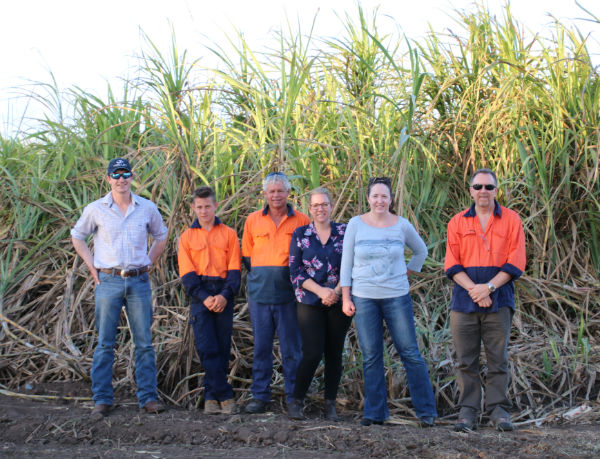
Members of the Sustainable Agriculture Project Reference Group meet with sugar cane farmer involved in RP20 project: (l-r) Tim Prosser (beef farmer), Christian DeFranciscis (farmer); David DeFranciscis (farmer); Kelly Lavell (DWER), Kath Lynch (DWER), and David Weaver (Department of Primary Industries and Regional Development).
A visit to Queensland to discuss farming best management practice programs to reduce nutrients entering the Great Barrier Reef was invaluable in recognising the important role of farmers in the long term health of estuaries.
Representatives from the Sustainable Agriculture Project Reference Group visited Queensland recently to hear first-hand experiences on programs and regulations to reduce nutrient loss off farms.
“Common to both Western Australia and Queensland, run-off from agricultural land represents the largest source of nutrients entering estuaries,” said Dr Kath Lynch from the Department of Water and Environmental Regulation (DWER).
“Over a fully packed, three day visit of discussions, workshops and site visits, the team met with representatives from the Queensland State Government, catchment groups, private agronomists and sugar cane farmers.
“Queensland has a multi-method approach to reducing nutrients off agricultural areas including fertiliser regulations, industry best management practice (BMP) programs and incentivised support for farmers for soil testing and agronomic advice,” said Kath.
“Taking an approach that farmers are part of the solution, the Queensland Government has initiated a number of BMP programs and farmer-led fertiliser trials in collaboration with industry producers.
“A highly successful project highlighted on the trip was the RP20 project, with 23 farmers involved in farmer-led fertiliser trials.
“The sugar cane farmers we met were really proud to have been involved in the project and keen to share their experience.
“The support to farmers and farmer trials, industry BMPs, and regulation provides a comprehensive set of tools to work with farmers to reduce nutrient loss off farm.
“We certainly want to use some of our Queensland learnings to develop programs to better support our farmers,” said Kath.
The Sustainable Agriculture program aims to support productive and profitable farming while improving and protecting the health of our estuaries.
